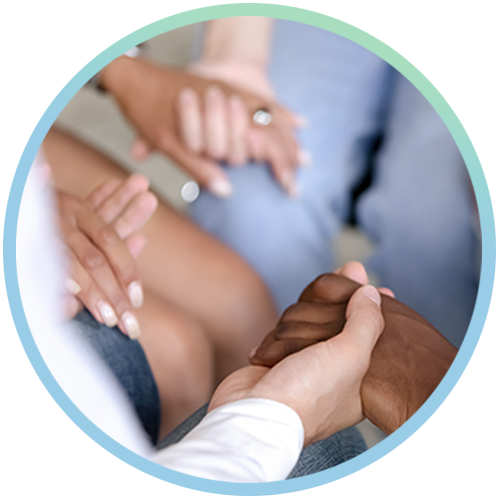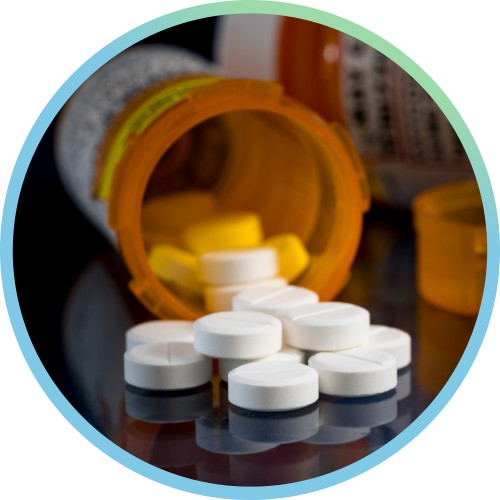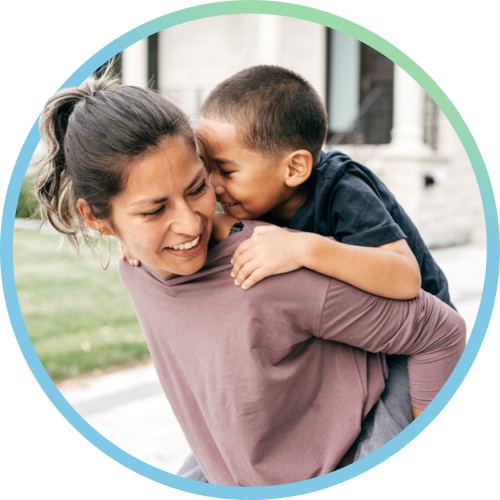Services and Programs
Medication Treatment For Opioid Use

Opioid Addiction
Addiction is a chronic, relapsing brain disease that is driven by an overwhelming desire to seek and use drugs, despite the harmful consequences. It is considered a brain disease because drugs change the brain and how it functions. These brain changes can be long-lasting, life-changing, and lead to harmful behaviors for the addicted person. These actions affect the health and welfare of the addicted person as well as their family and friends.
Opioids include:
- the illegal drug heroin
- human-made opioids such as fentanyl
- pain relievers like Vicodin®, Percocet®, and OxyContin®
Prescription opioids are often used to treat moderate to severe pain, though some opioids can be used to treat coughing and diarrhea. Opioids affect the brain’s “reward circuit,” causing euphoria (the high) and flooding the brain with the chemical messenger dopamine.


Harmful Effects of Opioids
Opioids can make people feel happy, relaxed, and pain-free in the short term. Because of the “good” feeling that comes from the increased dopamine in the “reward circuit” of the brain, one might be tempted to create that pleasurable feeling again and again.
However, opioid use can have serious consequences, including:
- overdose
- dependence
- addiction
These are more likely if you are abusing an opioid:
- taking too much
- taking someone else’s medicine
- taking it to get high
- taking it in a different way than prescribed
Taking too much of an opioid can lead to drowsiness, nausea, constipation, slowed breathing, and can cause breathing to stop, leading to death. Dependence is when you feel withdrawal symptoms when you don’t take the drug. Addiction is when a person compulsively seeks out the drugs, even though it is causing problems in their life.
Medication Treatment For Opioid Use
Breaking drug addiction may be difficult, but it is not impossible. There are several medications approved by the Food and Drug Administration (FDA) to treat opioid addiction. A combination of medication and behavioral therapy is proven to be very effective in treating opioid addiction. Omni Family Health’s goal is to provide positive treatment outcomes and long-term recovery for people suffering from opioid substance-use disorders.

This program combines medication, therapy, and support to help break the chronic disease of drug addiction. The medications used under a physician’s care include methadone, buprenorphine, and naltrexone.
These medications help with:
- withdrawal symptoms
- reduce cravings
- help prevent relapse
- support the transition to a drug-free lifestyle
This treatment plan is not meant to replace one drug addiction for another; in fact, these medications do not have the same effect on the brain and do not offer a “high” feeling. Most patients say the medication makes them feel “normal” and assists them in taking control of their lives again.

Ready for Change
If you or someone you love is addicted to opioids and could benefit from Omni’s Medication Treatment For Opioid Use let the professionals at Omni Family Health help with the journey to recovery.
Call Omni Family Health at (866) 707-OMNI (66 64) and ask to schedule a Medication Treatment For Opioid Use intake with our behavioral health team to discuss what the best options are for your treatment.